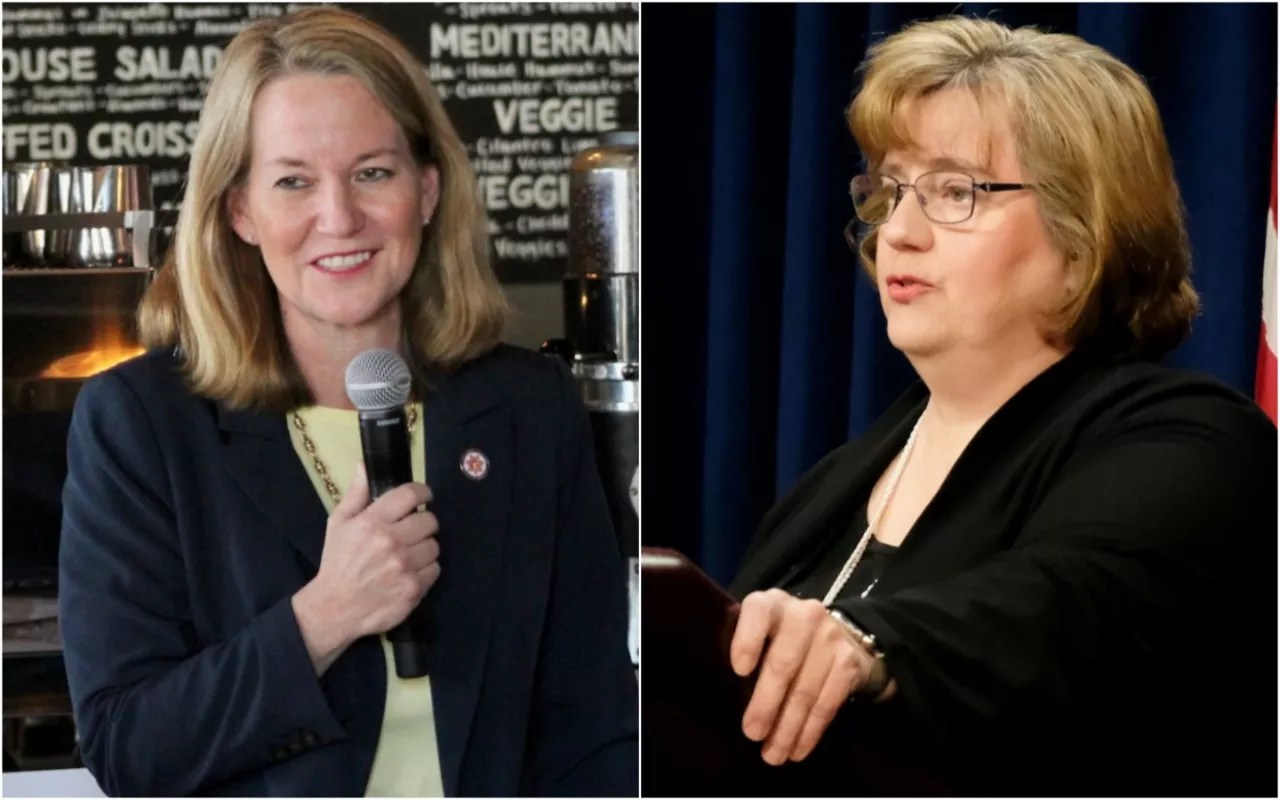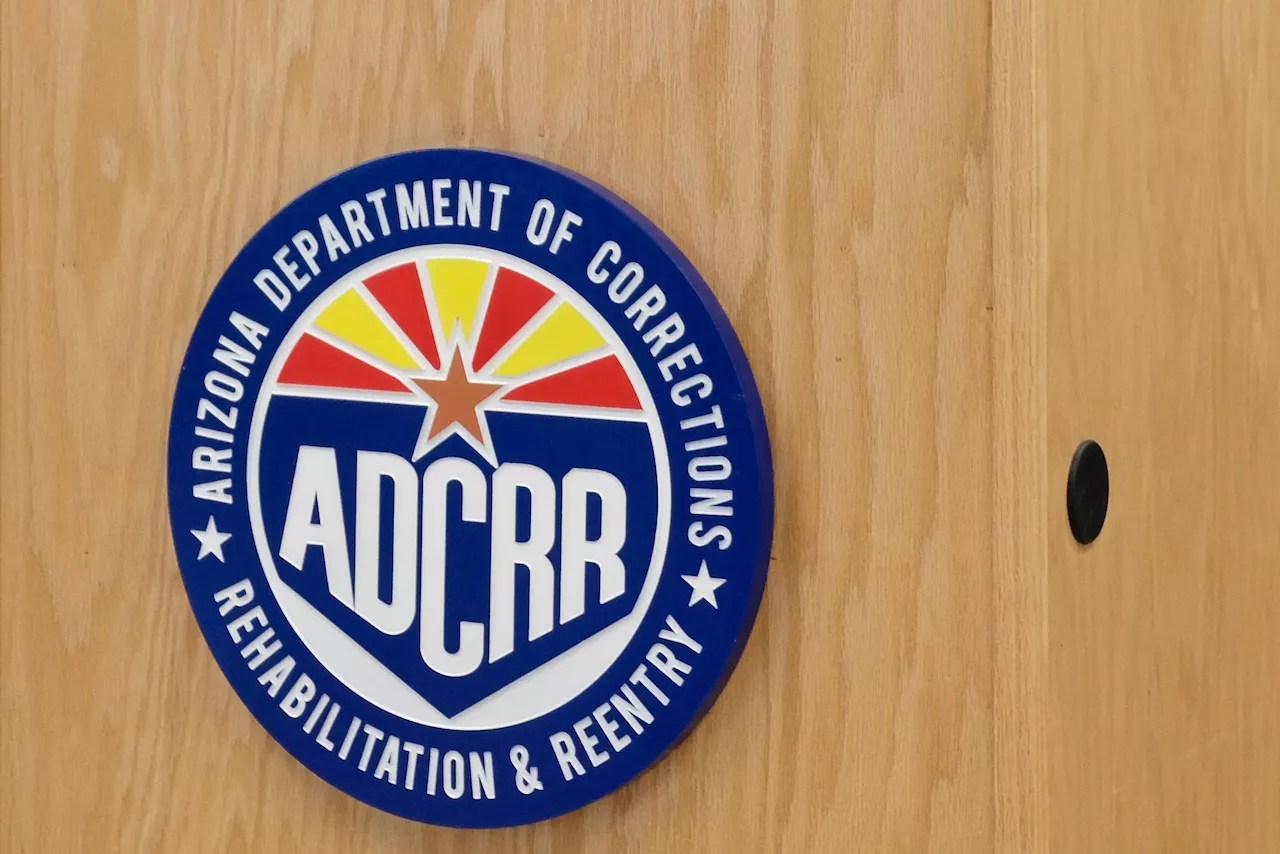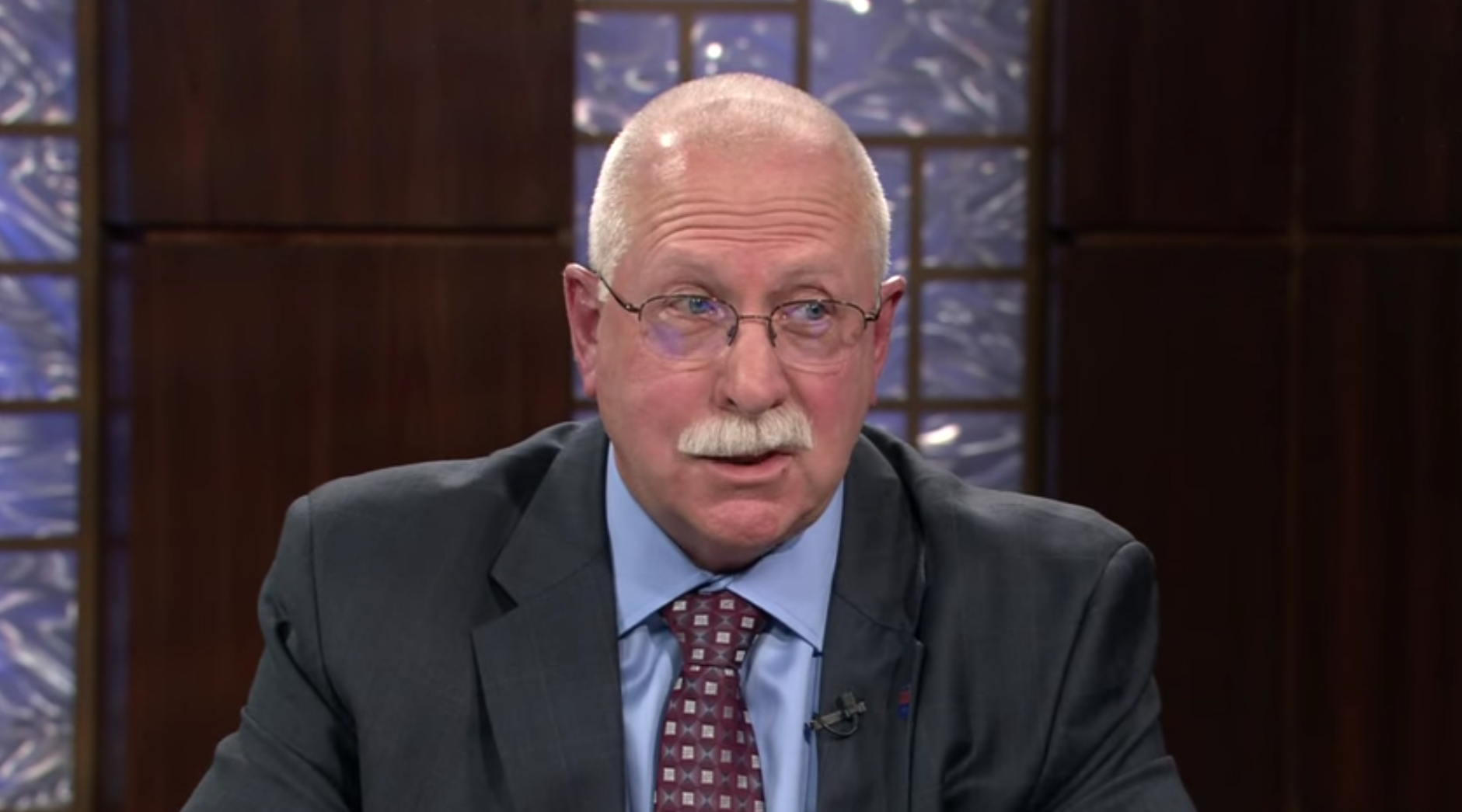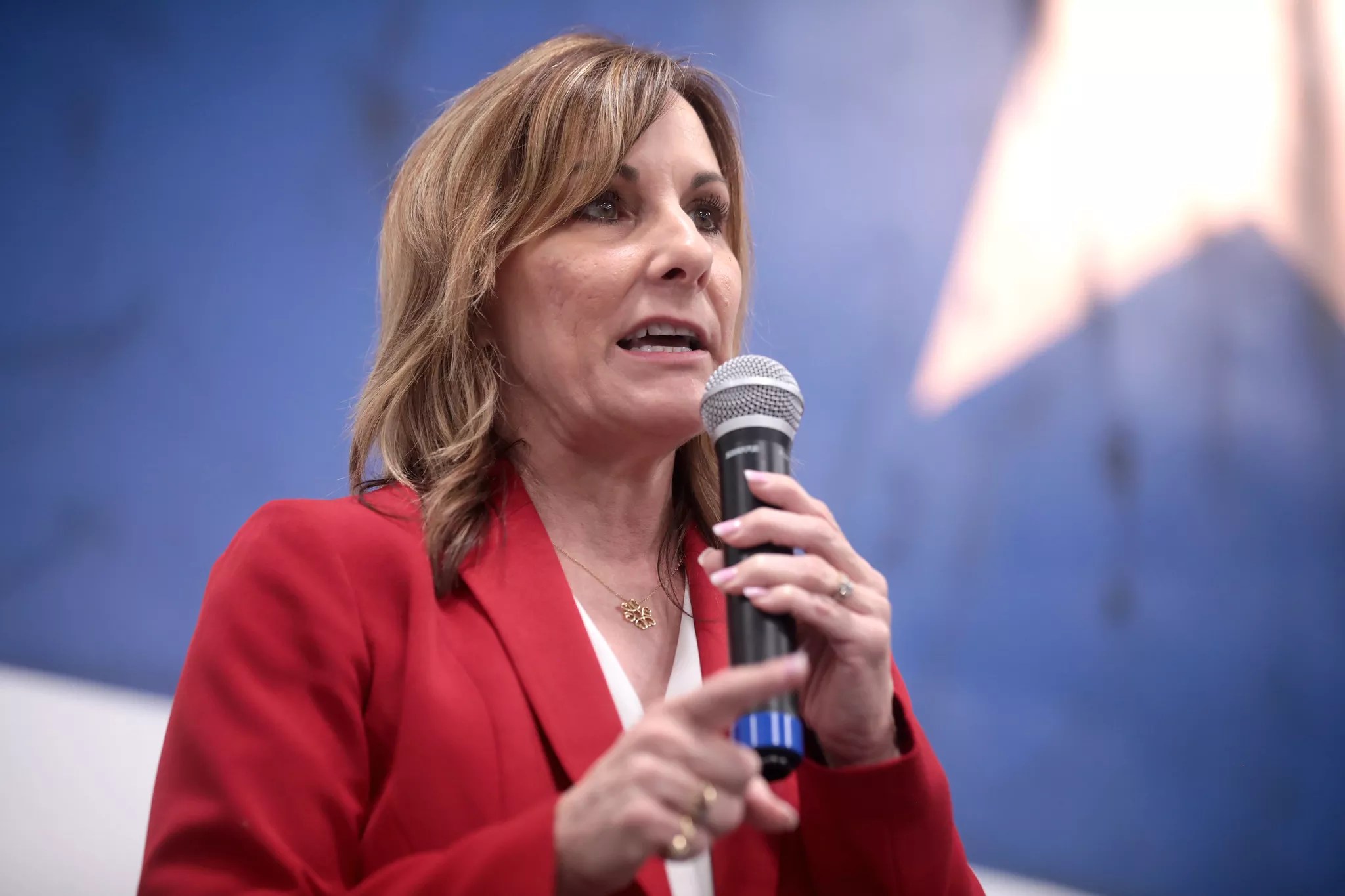
TJ L’Heureux and Katya Schwenk

Audio By Carbonatix
Maricopa County Attorney Rachel Mitchell’s latest bid for media attention might not have the effect she intended.
On Friday, Mitchell handed the Arizona Republic a scoop in the form of a May 16 letter to Mitchell from Arizona Attorney General Kris Mayes. The main takeaway: Mayes intends to seek death warrants again after Gov. Katie Hobbs paused Arizona’s enforcement of the death penalty in early 2023.
But it’s Mitchell’s over-the-top response, written on May 17 and also turned over to the Republic, that is the most telling.
In a three-page screed, Mitchell lectures Mayes for not executing people on death row sooner, berates the attorney general for her inexperience as a prosecutor and lambasts the state’s top law enforcement officer for daring to question a generous plea deal Mitchell handed to former Arizona corrections chief Charles Ryan.
Put simply, Mitchell’s letter is a doozy – an apparent attempt at political ambush-by-media that looks more like a self-inflicted wound. Phoenix New Times is here to decipher it.

The Arizona Department of Corrections, Rehabilitation and Reentry executed three prisoners in 2022.
Katya Schwenk
Kill ’em now
Mayes’ letter to Mitchell hardly dripped with venom – though it did take a few shots at Mitchell.
The letter mainly addressed a pause on death penalties initiated by Hobbs in a January 2023 executive order. Citing Arizona’s history of mismanaged executions, Hobbs tabbed retired federal magistrate David Duncan to study the Arizona Department of Corrections, Rehabilitation and Reentry and its two methods of executions: lethal injection and the gas chamber. At the time, Mayes announced that she would not seek death penalty warrants from the Arizona Supreme Court until the review was completed.
But that freeze, Mayes wrote to Mitchell, will soon end. “I intend to begin seeking warrants no later than the first quarter of 2025,” Mayes wrote. By then, she added, Duncan’s review should be complete, and ADCRR will have had time to adjust its procedures. Mayes also noted that her office continues to defend death sentences in appellate courts.
For Mitchell, a staunch supporter of the death penalty, this would seem to be good news. Never mind that killing a prisoner often costs taxpayers more than imprisoning one for life, or that states have a less-than-perfect track record of killing the right person or even doing it humanely. But not good enough for Mitchell.
She wants people executed now.
“Your promise that you will start to do your job in 2025” rings hollow, Mitchell wrote. Arizona law, she explained to the top official charged with defending it, “does not give Governor Hobbs the ability to unilaterally suspend the death penalty.” Mitchell also appeared to take particular offense at the suggestion that some of the state’s most recent executions were botched.
“I attended the most recent execution – that of Murray Hooper,” Mitchell wrote. “The sole delay in the process was so that the medical team could obtain a smaller needle so that it would ‘hurt less.'”
But while trying to score some political points, Mitchell ignored a few important facts.
For one, the Arizona Supreme Court ruled in March 2023 that it could not compel Hobbs to carry out the execution of death row prisoner Aaron Brian Gunches. Rather, it said the court’s role under Arizona law is to issue warrants authorizing executions, not to order they be done. Nor is this the first time Arizona’s executions were placed on hold.
After the prolonged execution by lethal injection of convicted murderer Joseph R. Wood III in 2014, Republican Gov. Jan Brewer ordered a review of the incident, and then-Attorney General Terry Goddard stopped asking the Arizona Supreme Court for death warrants pending the review’s completion.
Though some witnesses described Wood as “snoring” during his execution, others reportedly saw him gasp for breath hundreds of times. Even Sen. John McCain, a supporter of the death penalty, called Wood’s execution “torture.” Following Wood’s death, Arizona effectively halted executions for the next eight years.
They resumed in 2022 under Republican Gov. Doug Ducey, whose administration executed three convicted killers by lethal injection. In each case – including Hooper’s, whose supposedly less-painful execution Mitchell bragged to Mayes about watching – corrections officials reportedly had problems inserting needles into the prisoners.
Currently, there are 112 people on Arizona’s death row – three women and 109 men.

Former Arizona Department of Corrections chief Charles Ryan got off without jail time despite pointing a gun at Tempe police officers in a three-hour-long drunken standoff in 2022.
YouTube
‘Prosecutors don’t run from bullies’
‘Prosecutors don’t run from bullies’ At the end of Mayes’ letter, the attorney general delivered a zinger. Mitchell responded with a full-scale barrage.
“I would also be happy to discuss with you other issues of great importance to Arizonans,” Mayes wrote in her final paragraph, “including women’s access to reproductive health care and the importance of equal treatment under the law, regardless of a defendant’s wealth, prominence, or political connections.”
The mention of women’s health care was an apparent reference to Mitchell’s opacity on the question of enforcing Arizona’s abortion laws. For someone lecturing the attorney general on how to perform her job, when it comes to enforcing abortion laws, Mitchell has been especially vague about how she’d go about hers. But Mayes’ second issue, about equal treatment under the law, drew the fiercest return fire.
A footnote from Mayes constituted the first shot. “On that front,” it read, “I have concerns about your Office’s recent prosecution of former ADCRR Director Charles Ryan.” Mayes also included a link to an Arizona Republic report about two Tempe police detectives who claim Mitchell gave Ryan preferential treatment.
Rebutting such an insult was the “real reason for this letter,” Mitchell admitted. So, she spent the next two pages talking down to the state’s top lawyer.
“I realize that you have never worked as a prosecutor,” Mitchell wrote, “but speaking as someone who has spent 32 years working as a prosecutor, I am on solid ground to inform you that prosecutors don’t run from bullies. But since I am not a cynical person, I will assume that that was not your motive.”
Ryan allegedly pointed his gun at police officers during a three-hour-long drunken standoff with Tempe cops in 2022. Tempe police detectives believed Ryan committed aggravated assault with a deadly weapon on a police officer, a class 2 felony that carries mandatory prison time. But Ryan was never charged with that. Earlier this year, Mitchell’s office cut a deal allowing Ryan to plead guilty to disorderly conduct, a lesser felony for which he was sentenced to two years of supervised parole.
Mitchell may not be a cynic, but plenty of others are about the Ryan prosecution, including Mitchell’s political opponents. But Mitchell took great umbrage at Mayes’ suggestion that not everything was on the up and up. By expressing “concerns” in a one-sentence footnote, Mitchell said, Mayes was being “legally irresponsible” and maligning the “experienced prosecutors” who worked the case.
“Because I have far more prosecution experience than you,” Mitchell chided, “I feel the need to caution you against making unfounded claims that a prosecutor would show favoritism to a defendant who is a member of the same political party because it opens the door to the converse argument: that a defendant who is of a different political party than a prosecutor will not receive justice.
“I know you do not feel that way.”
Mitchell’s not mad. Just disappointed.

Gina Godbehere, who is challenging Maricopa County Attorney Rachel Mitchell in the Republican primary, criticized Mitchell for airing her grievances in the press.
Gage Skidmore via Flickr
Let’s play the feud
In her retort, Mitchell called Mayes’ letter “a thinly-veiled message that any attempt by my office to force you to do your job will be met with an attempt to make a political impact.” That’s ironic considering that Mitchell is on the ballot this November and Mayes is not.
That’s certainly how Mitchell’s rival in the GOP primary sees it. Gina Godbehere is a veteran prosecutor who spent more than 25 years in the county attorney’s office before serving as the chief prosecutor for the City of Goodyear. She’s previously labeled Mitchell’s treatment of Ryan as a “sweetheart plea deal,” and she sees another self-serving motive behind Mitchell’s response to Mayes.
In a statement sent via text to New Times, Godbehere called the saga “AS THE POLITICAL PLAYGROUND TURNS, starring Rachel Mitchell as she attempts to regain her authority as County Attorney.” (Tamika Wooten, the Democrat running for county attorney who would face the winner of the Republican primary in November, did not respond to a request for comment.)
Godbehere also asked a couple questions. “When did official correspondence on serious matters of execution become an avenue to personally embarrass the other? And why would Mitchell go out of her way to publicize it in the AZ Republic?”
A spokesperson for Mayes told the Arizona Republic that the attorney general “intended her letter to be private correspondence” – it’s in fact a public record – and that “apparently, County Attorney Mitchell felt otherwise.” Mitchell’s office did not respond to New Times’ questions about the release of the letters.
But Godbehere sees one obvious explanation.
“It must be campaign season,” she said.